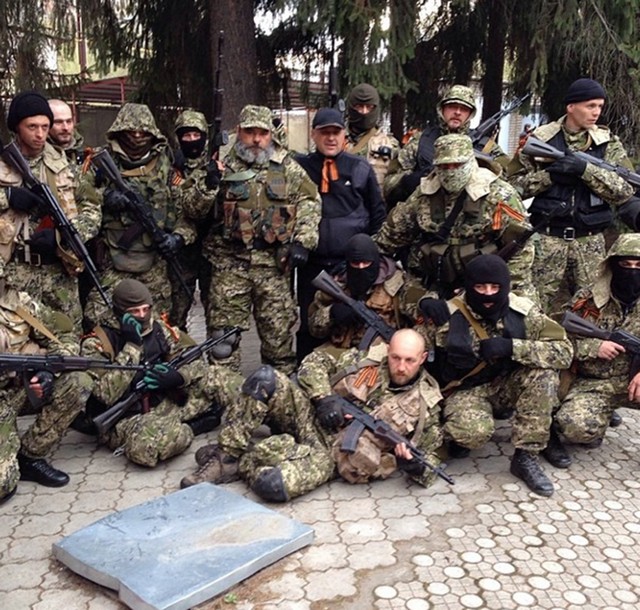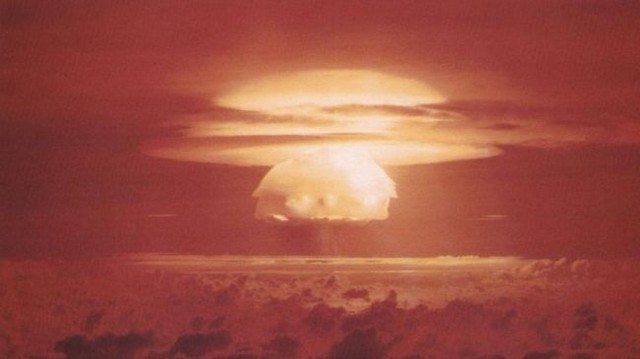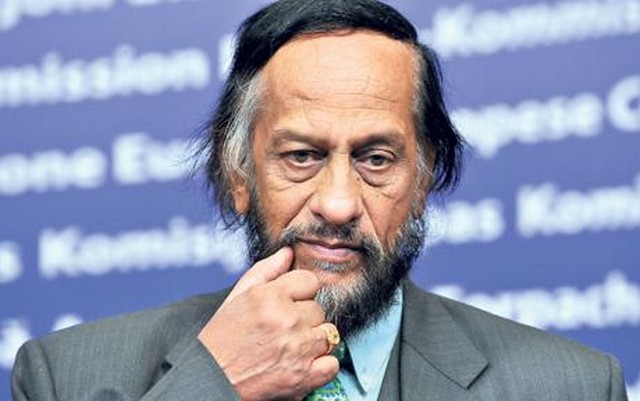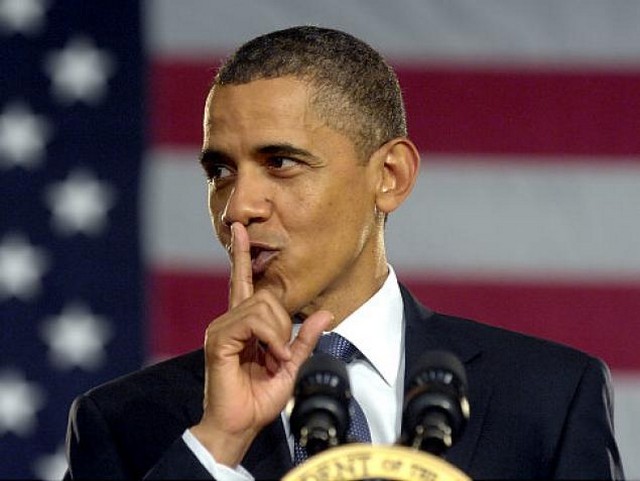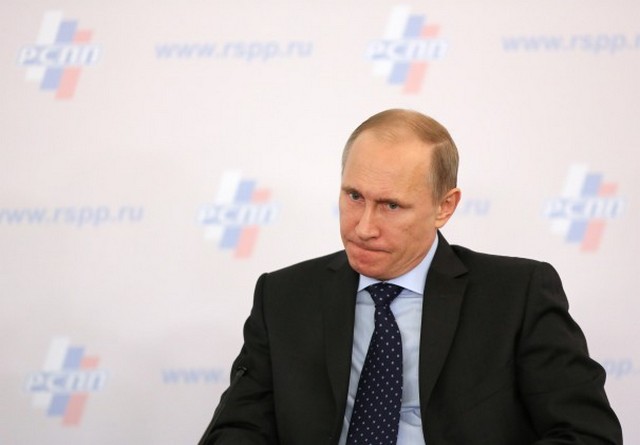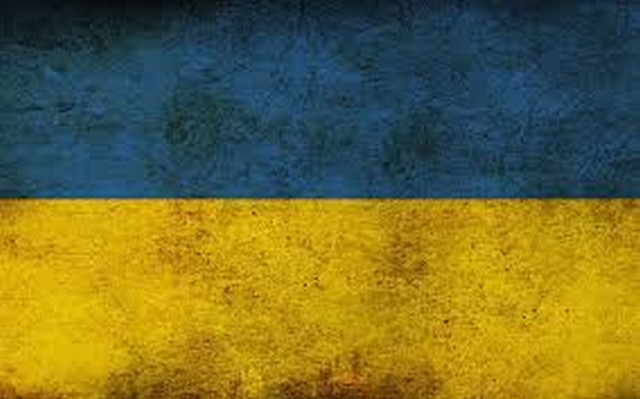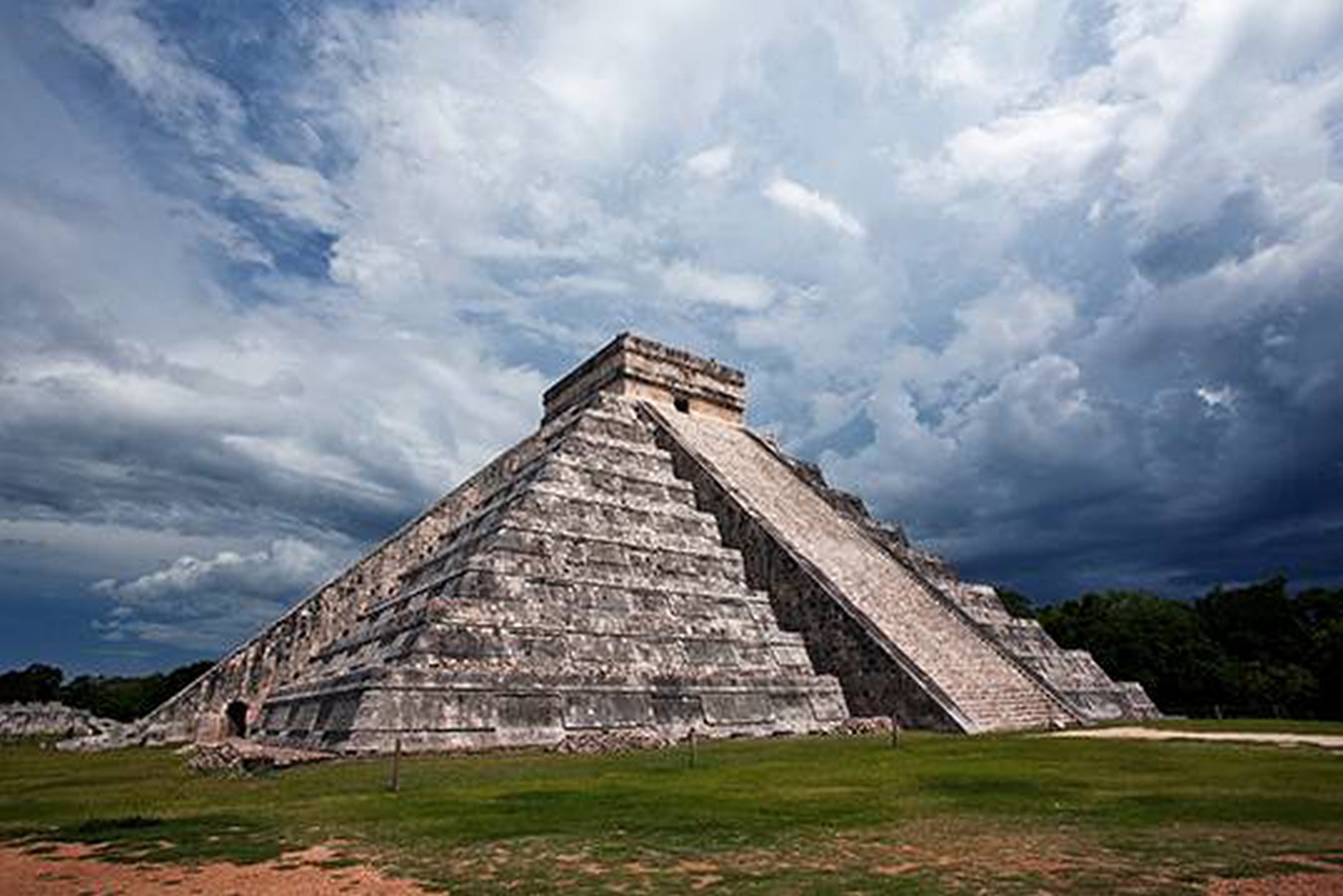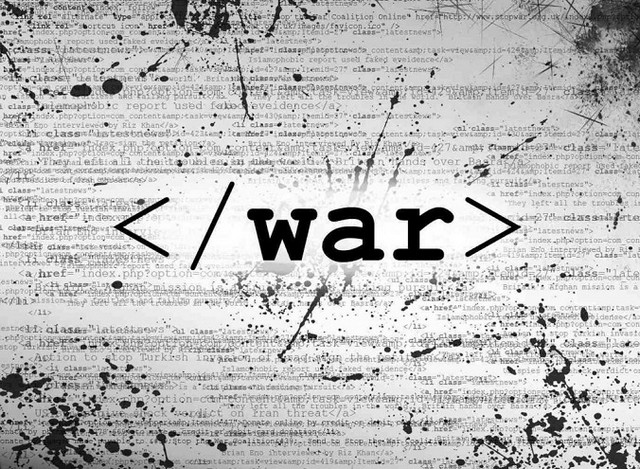By Dr Gideon Polya
Decent people reject racism apartheid and genocide. Zionism is genocidal racism in its awful theory and ghastly practice of subjugation, dispossession, and ethnic cleansing of another people. This evil is most starkly exposed when one considers the horrendous child abuse variously inflicted by racist Zionists, by Apartheid Israel and by pro-Zionist US Alliance allies of the Apartheid rogue state on exiled Palestinian children, Occupied Palestinian children, Palestinian Israeli children, Jewish Israeli children, Jewish children in general, Muslim children, Third World children and indeed potentially all children of the world as systematically outlined below.
1. Apartheid Israel violates the Right to Life of Palestinian children.
The most fundamental human Right is the Right to Life [1] but the racist Zionists have denied this Right to the approximately 2 million Palestinians (half of them children) who have died from violence (0.1 million) or from imposed deprivation (1.9 million) since 1936. By comparison one notes that the German Nazis killed 1.5 million Jewish children in WW2 through violence or imposed deprivation. In contrast, Israeli deaths at the hands of Palestinians since 1920 have totalled about 3,700 [2].
The Israeli human rights organization B’Tselem has compiled the following details of violent Israeli and Palestinian child deaths in the period 1987-2012 in Israel, the West Bank and Gaza: (a) total fatalities in the First Intifada, minors under the age of 17 (Dec. 9, 1987-Sept. 28, 2000): Israelis – 18; Palestinians – 281 (by Israel security forces) and 23 (by Israeli civilians); (b) total Casualties: (Sept. 29, 2000-Sept. 30, 2012): Israelis – 129; Palestinians – 1,337; (c) fatalities since the outbreak of the second intifada and until operation “Cast Lead” (Sept. 29, 2000-Dec. 26, 2008): Israelis – 123; Palestinians – 954; (d) fatalities during operation “Cast Lead” (Dec. 27, 2008-Jan. 18, 2009): Israelis – 0; Palestinians – 345; (e) fatalities after operation “Cast Lead”: (Jan. 19, 2009-Oct. 31, 2012): Israelis – 6; Palestinians – 38 i.e. a total of 2,978 or about 3,000 and about 120 on average per year [3].
UNICEF reveals that 3,000 Occupied Palestinian under-5 year old infants die each year as compared to 1,000 for Apartheid Israel . The under-5 year old infant mortality in deaths per 1,000 live births is 22.4 (for Occupied Palestinians in the Gaza Concentration Camp), and 14.9 (for Occupied Palestinians in the West Bank) [4] as compared to 6 for Apartheid Israel [5].
Palestinian children are not just killed by Israeli shells, bombs, bullets and beatings but mostly die avoidably from racist Zionist-imposed deprivation. It is estimated that about 300,000 Occupied Palestinians in total and about 200,000 Palestinian under-5 year old infants died avoidably from deprivation under Israeli guns since 1967 in an ongoing Palestinian Genocide [2, 6, 7].
Avoidable mortality (avoidable death, excess mortality, excess death) is the diffeence between the actual deaths in a country and the deaths expected for a peaceful, decently-run country with the same demographics. For impoverished Third World countries avoidable deaths are about 1.4 times under-5 infant deaths [8]. Accordingly, annual avoidable Occupied Palestinian deaths total about 3,000 x 1 .4 = 4,200 of which about half (2,100) are of children. Thus the racist Zionists violently kill about 120 Occupied Palestinian children each year and passively murder another 2,100 Occupied Palestinian children annually through imposed deprivation. This means that on average the Apartheid Israeli authorities violently kill a Palestinian child every three days but on average also deliberately passively murder about 6 Palestinian children each day through imposed deprivation as surely as if they beat, bombed, shot or gassed them as did their genocidally racist Nazi German role models.
Genocidally racist Apartheid Israel grossly violates Article 6 of the Convention on the Rights of the Child which states:: “ 1. States Parties recognize that every child has the inherent right to life. 2. States Parties shall ensure to the maximum extent possible the survival and development of the child” [1].
2. Apartheid Israel deprives Occupied Palestinians (half of them children) of all human rights set out in the 30 Articles of the Universal Charter of Human Rights.
A recent detailed analysis shows that nearly 47 years after the 1967 Israeli conquest of all of Palestine, the Western-backed, invasion-, occupation- , theft- , genocide-, lying- and race-based Apartheid State of Israel still comprehensively violates all the basic human rights of the Indigenous Occupied Palestinian People as set out in the 30 Articles of the UN Universal Declaration of Human Rights [9, 10]. Apartheid Israel also comprehensively violates the “Convention on the Rights of the Child” in denying not just the Right to Life on a massive, genocidal, mass paedocidal and mass infanticidal scale but in denial of essentially all other rights of the child to Occupied Palestinian children [1].
3. Highly abusive, traumatizing and deadly mass confinement and deprivation of Occupied Palestinian children.
Of the 1.8 million Occupied Palestinians in the Israeli-blockaded Gaza Concentration Camp over half (52.5%, 0.9 million) are children who are highly abusively confined without human rights and without charge or trial and for the asserted crime of being Indigenous Palestinians living in a tiny part of the country inhabited continuously by their forebears for thousands of years to the very dawn of agrarian civilization. Of the 2.5 million Occupied Palestinians in the West Bank about half (47.3%, 1.2 million) are highly abusively confined without human rights to ever-dwindling Bantustans under violent Israeli military rule and forbidden access by Israeli Apartheid to “Jewish” roads and “Jewish” land [11]. While the West Bank Bantustans are policed by war criminal Israeli military with guns, the Gaza Concentration Camp is policed by Israeli naval shelling, Israeli military shelling and gunfire and Israeli air force rockets, phosphorus bombs and high explosive bombs.
UNICEF provides a dire summary of the conditions of Occupied Palestinians [4]: Rank in Human Development Index (2007): 106/177; GNI per capita (US$, 2008): 1,230; Percentage of people living below the national poverty line (2007): 55.7 % (Gaza), 23.6 % (West Bank); Unemployment (2008): 19.8% (West Bank), [about 80% (Gaza)]; Number of Palestinian children killed as a result of conflict (September 2000 – January 2009): 1,475; Percentage of stunting: 10%; Percentage of anaemia: 50%; Percentage of households not connected to water networks (2008): 10%; Percentage of Primary School net enrolment (2008, SOWC 2010): 73%.
Jewish British Labor MP David Miliband (the son of anti-racist, pro-human rights Jewish British parents) visited Gaza and commented (2011): “The statistics say that 80% of the population are on UN food aid. The youth unemployment rate is 65%. The website of the United Nations office for the co-ordination of humanitarian affairs has a comprehensive database where you can see how many trucks, containing different kinds of supplies, have been allowed in by the Israeli authorities. … But although life is real, it is traumatic and limited. We saw buildings – not just the former Hamas headquarters – still reduced to rubble. There are houses riddled with bullet holes. The electricity supply cuts out for up to eight hours a day. There are not enough schools or teachers, so there are classes of 50 or 60 and the school day is restricted to a few hours to allow for two or even three shifts. … The consequences of war are everywhere, nowhere more so than for those caught in the crossfire…Save the Children, obviously, is most concerned about the 53% of the Gaza population under 18. The statistics say 10% of children are “stunted” – so undernourished before the age of two that they never grow to their full potential” [12].
Apartheid Israel thus grossly violates Article 2 of the Convention on the Rights of the Child which states: “ 1. States Parties shall respect and ensure the rights set forth in the present Convention to each child within their jurisdiction without discrimination of any kind, irrespective of the child’s or his or her parent’s or legal guardian’s race, colour, sex, language, religion, political or other opinion, national, ethnic or social origin, property, disability, birth or other status. 2. States Parties shall take all appropriate measures to ensure that the child is protected against all forms of discrimination or punishment on the basis of the status, activities, expressed opinions, or beliefs of the child’s parents, legal guardians, or family members” [1].
4. Highly abusive and traumatizing imprisonment and torture of West Bank Palestinian children.
The Committee on the Rights of Children (a body of independent legal experts charged by the UN with the task of monitoring the protection of children’s rights in signatory states) has condemned Israeli torture and other maltreatment of Palestinian children (2014) : “The Committee expresses its deepest concern about the reported practice of torture and ill-treatment of Palestinian children arrested, prosecuted and detained by the military and the police, and about the State party’s failure to end these practices in spite of repeated concerns expressed by treaty bodies… [Palestinian children are] systematically subject to physical and verbal violence, humiliation, painful restraints, hooding of the head and face in a sack, threatened with death, physical violence, and sexual assault against themselves or members of their family, restricted access to toilet, food and water. These crimes are perpetrated from the time of arrest, during transfer and interrogation, to obtain a confession but also on an arbitrary basis as testified by several Israeli soldiers as well as during pretrial detention” [13].
The Australian ABC TV Four Corners program recently broadcast profoundly disturbing revelations of how the Israeli military arrest, imprison and torture Palestinian children to obtain information about Occupied Palestinian family members and community members (2014): “ The Israeli army is both respected and feared as a fighting force. But now the country’s military is facing a backlash at home and abroad for its treatment of children in the West Bank , occupied territory. Coming up, a joint investigation by Four Corners and The Australian newspaper reveals evidence that shows the army is targeting Palestinian boys for arrest and detention. Reporter John Lyons travels to the West Bank to hear the story of children who claim they have been taken into custody, ruthlessly questioned and then allegedly forced to sign confessions before being taken to court for sentencing…” [14].
Apartheid Israel thus also grossly violates Article 37 of the Convention on the Rights of the Child which states: “ States Parties shall ensure that: (a) No child shall be subjected to torture or other cruel, inhuman or degrading treatment or punishment. Neither capital punishment nor life imprisonment without possibility of release shall be imposed for offences committed by persons below eighteen years of age; (b) No child shall be deprived of his or her liberty unlawfully or arbitrarily. The arrest, detention or imprisonment of a child shall be in conformity with the law and shall be used only as a measure of last resort and for the shortest appropriate period of time; (c) Every child deprived of liberty shall be treated with humanity and respect for the inherent dignity of the human person, and in a manner which takes into account the needs of persons of his or her age. In particular, every child deprived of liberty shall be separated from adults unless it is considered in the child’s best interest not to do so and shall have the right to maintain contact with his or her family through correspondence and visits, save in exceptional circumstances; (d) Every child deprived of his or her liberty shall have the right to prompt access to legal and other appropriate assistance, as well as the right to challenge the legality of the deprivation of his or her liberty before a court or other competent, independent and impartial authority, and to a prompt decision on any such action” [1].
5. Horrendous physical, emotional and sexual abuse of Jewish Israeli and Arab Israeli children.
Yarden Skop writing in the progressive Jewish Israeli newspaper Haaretz (2013): “ A study on child abuse of more than 10,000 children — the first of its kind to be conducted in Israel — found that close to half of them reported that they had been physically, emotionally or sexually abused. The study, which was conducted from September 2011 to September 2013 by the Center for the Study of Society at the University of Haifa , was headed by Prof. Zvi Eisikovits and Prof. Rachel Lev-Wiesel. Until now statistics on child abuse in Israel have been based solely on cases reported to the authorities and on information received from the authorities themselves. The University of Haifa study collected first-hand accounts from Jewish and Arab children aged 12 (sixth grade), 14 (eighth grade) and 16 (tenth grade). The total size of the sample was 8,239 Jewish children and 2,274 Arab children. The study found that almost half of the children (48.5 percent) reported that they had suffered one or more kinds of abuse. Twenty-eight percent reported emotional abuse, 18 percent reported sexual abuse, 15 percent reported emotional neglect, 14 percent reported physical neglect, 14 percent reported physical harm and nine percent reported that they had been exposed to violence within the family. More than two-thirds of the Arab children (67.7 percent) reported that they had suffered one or more kinds of abuse. This means that two of every three Arab children suffer some sort of violence” [15].
Danielle Ziri writing about this new report on Israeli child abuse in the conservative Jewish Israeli newspaper The Jerusalem Post (2013): “ In the Jewish sector, almost half of the children surveyed – 48.5 percent – reported that they had experienced one or more types of abuse. In addition, the report showed that there is a very significant gap between the number of child victims of abuse known to the authorities and the number of children who indicated directly that they had been abused. In 2012, social workers reported 48,992 children and youth on suspicion of child abuse and neglect, which constituted 1.9% of all children in Israel , compared to the 48.5% of children who reported being affected by abuse in this study… It was also found that the rate of abuse is higher with the age of the child: among 12-year-olds, 42.9% reported that they had endured some kind of violence, while 48.9% of 14-year-olds and 58% of 16-year-olds reported so. In terms of physical abuse, 14.1% of children in the Jewish sector and 27.6% in the Arab sector reported that they had been kicked, hit or physically hurt…According to the results, 17.6% of children in the Jewish sector and 22.3% of children in the Arab sector had been victims of sexual abuse. About 8.3% of Jewish children and 11.8% of Arab children had suffered serious sexual harm. Of the children who had been sexually abused, 46.5% in the Jewish sector and 49% in the Arab sector indicated that the abuse occurred more than once, and most of them also mentioned that it had continued over the past year. Moreover, the vast majority indicated that their abuser was a man and over one third of the children abused said it had happened within their family” [16] .
6. Horrendous intellectual child abuse applied to Israeli children.
The state of Israel is a nuclear terrorist, serial war criminal, genocidally racist, racism- and genocide-based, democracy-by-genocide Apartheid state. Racist Zionist (RZ)-run Apartheid Israel is a democracy-by-genocide – of about 12 million Palestinians only 7%, the adults of 1.7 million Palestinian Israelis (21% of the Israeli population) can vote for the government ruling all of Palestine plus part of Lebanon and a largely ethnically cleansed part of Syria, albeit as third class citizens; 1.8 million Occupied Palestinians are highly abusively confined to the Gaza Concentration Camp with minimal human rights; 2.5 million Occupied Palestinians live with minimal human rights under highly abusive military rule in West Bank Bantustans; about 6 million Palestinians are forbidden to even live in Palestine; there are 5.9 million Jewish Israelis and 0.3 million non-Jewish and non-Arab Israelis [2, 11]. About 50% of Occupied Palestinians are children (49.3% overall, 52.5% in the Gaza Concentration Camp, 47.3% in the West Bank ) [11] and about 36% of Israelis are children.
Outstanding Jewish American scholar Professor Jared Diamond in his best-selling book “Collapse” (Prologue, p10, Penguin edition) [17] enunciated the “moral principle, namely that it is morally wrong for one people to dispossess, subjugate, or exterminate another people” – an injunction grossly violated by racist Zionist (RZ)-run Apartheid Israel and its racist, genocide-committing and genocide-ignoring US Alliance backers. However Israeli children are taught otherwise and are subject to horrendous intellectual child abuse in being raised to accept the rightness of invading and colonizing the country of another people and in the process subjecting the Indigenous inhabitants (50% children) to war, occupation, robbing, deprivation, imprisoning, torture, killing, exiling, trauma, and ethnic cleansing (genocide). Yet anti-racist Jewish humanitarians argue otherwise – for example, Moshe Menuhin (1893-1983, a prominent anti-Zionist, father of famous violinist, universalist and anti-Zionist Yehudi Menuhin and the author of “The Decadence of Judaism in Our Time”, “Jewish Critics of Zionism”, and of the family history “The Menuhin Saga”) put it succinctly thus: “Jews should be Jews – not Nazis.” [18].
The impact of this horrendous Israeli intellectual child abuse is revealed by American physician and evolutionary anthropologist Dr John Hartung as reported by Professor Richard Dawkins in his book “The God Delusion” (pp 253-257) [19] who reported the findings of Israeli psychologist George Tamarin: “Tamarin presented to more than a thousand Israeli school children, aged between eight and fourteen , the account of the battle of Jericho in the book of Joshua [which states] Then they utterly destroyed all in the city, both men and women, young and old, oxen, sheep, and asses, with the edge of the sword … Tamarin then asked the children a simple moral question: “Do you think Joshua and the Israelites acted rightly or not? They had to choose between A (total approval), B (partial approval) and C (total disapproval). The results were polarized: 66 per cent gave total approval, and 26 per cent total disapproval, with rather fewer (8 per cent) in the middle with total approval … Tamarin ran a fascinating control group in his experiment. A different group of 168 Israeli children were given the same text from the book of Joshua, but with Joshua’s name replaced by “General Lin” and “ Israel ” replaced by “a Chinese kingdom 3,000 years ago”. Now the experiment gave opposite results. nly 7 per cent approved of General Lin’s behaviour, and 75 per cent disapproved… It was religion that made the difference between children condemning genocide and condoning it” [19].
7. Horrendous impact of Apartheid Israel on the world’s children.
Apartheid Israel has been a major recipient of US aid that would otherwise have gone to alleviate poverty and prevent avoidable mortality – and especially avoidable mortality of children – around the world. The horrendous long term, committed accrual financial cost of Apartheid Israel to Americans has now reached a gigantic $40 trillion in today’s dollars. However the human cost involves the preventable deaths of millions of Americans – passive mass murder of Americans in an American Holocaust inflicted by the fiscal perversion of traitorous Neocon American and Zionist Imperialist (NAZI) One Percenters committing $8-10 trillion to ethnic cleansing and active and passive mass murder of Muslims abroad in support of Apartheid Israel instead of keeping Americans alive at home. The long term, committed accrual cost of Zionist-subverted American Government support for Apartheid Israel in circa 2008 dollars totals about $40 trillion, the breakdown being (1) $3 trillion (1948-2003), (2) $4-6 trillion (Zionist-promoted Iraq and Afghan Wars), (3) $0.7 trillion (Value of a Statistical Life- or VSL-based cost of 88,000 US veteran suicides since September 2001) and (4) about $30 trillion (one quarter of the VSL-based cost of 15.6 million preventable American deaths since September 2001). This is an under-estimate because it does not consider the millions of preventable American deaths before 9-11 and linked to Zionist subversion and perversion of America [20, 21].
This racist Zionist perversion of the USA (now aka USrael or the United States of Israel) has come at a huge cost to the world’s children. Thus it is estimated that the 1950-2005 avoidable deaths globally totaled 1.3 billion of which 1.2 billion were in the Developing World and 0.6 billion in the Muslim World, with about half being children [8]. These estimates are consonant with estimates of 1950-2005 under-5 year old infant deaths totaling 0.88 billion for the world, 0.85 billion for the Developing World and 0.4 billion for the Muslim World [8] , this representing a Muslim Genocide and Muslim Holocaust 100 times greater than the WW2 Jewish Holocaust (5-6 million killed) and the “forgotten” WW2 Bengali Holocaust in which pro-Zionist Churchill with Australian complicity deliberately starved 6-7 million Indians to death for strategic reasons [8, 22-25]. In 2003 global avoidable deaths from deprivation totaled about 16 million and under-5 year old infant deaths totaled about 10 million [8]. However currently annual avoidable deaths from deprivation total about 18 million (half of them children) and annual under-5 year old infant deaths total about 7 million, with this Global Avoidable Mortality Holocaust carnage occurring on Spaceship Earth with the racist Zionist perverted and subverted US in charge of the flight deck.
However Apartheid Israel has a more direct involvement in this global carnage through its role as a dirty tricks US surrogate, keeping the Muslim world suppressed and through dirty involvements in atrocities like the Guatemalan Indian Genocide and the Sri Lankan Tamil Genocide [8]. While non-nuclear weapons and anti-nuclear weapons Iran has not invaded any other country for centuries, it is subject to Zionist-promoted sanctions that are connected to 100,000 avoidable Iranian deaths from deprivation each year (half being children). In contrast, Apartheid Israel has militarily attacked 12 other countries (the list, including attacks on national ships and aircraft, is as follows: Iraq, Syria, Lebanon, Jordan, Palestine, Egypt, Tunisia, Libya, Sudan, Uganda, USA, and Turkey), noting that such attacks result in diversion of national resources from keeping children alive to national defence).
Thus the 1950-2005 avoidable deaths from deprivation in countries actually occupied by Apartheid Israel total 24 million (half being children), the breakdown being as follows (with the data expressed as 1950-2005 avoidable deaths/2005 population, both in millions, m) : Apartheid Israel [0.095m/6.685m =1.4%] – Egypt [19.818m/74.878m = 26.5%], Jordan [0.630m/5.750m = 11.0%], Lebanon [0.535m/3.761m = 14.2%], Occupied Palestinian Territories [0.677m/3.815m = 17.7%], Syria [2.198m/18.650m = 11.8%], total = 23.858m/106.854 = 22.3% [8]. This carnage is similar in magnitude to that achieved by Nazi Germany in its WW2 invasion of the Soviet Union . These 24 million avoidable deaths in countries variously occupied by Apartheid Israel are indicative of 17 million under-5 year old infants in these racist Zionist (RZ)-violated countries in the period 1950-2005 [8].
Numerous science, engineering, architecture, aviation, military and intelligence experts conclude that the US was responsible for the 9-11 atrocity (3,000 killed) with some concluding that Apartheid Israel must have been involved [26]. The resulting Zionist-promoted US War on Terror has, so far, been associated with 10 million Muslim deaths from violence or from violently-imposed deprivation. The post-1990, Zionist-promoted War on Muslims has been associated with 12 million such deaths, a Muslim Genocide and a Muslim Holocaust 2 times greater in deaths than the WW2 Jewish Holocaust (5-6 million deaths) [2, 27-29].
8. Horrendous impact of Apartheid Israel on children of its pro-Zionist friends, the US and Australia .
US is the richest country on earth but an estimated 1.3 million Americans die preventable deaths each year due to gross fiscal perversion whereby trillions of dollars are spent on the military, wars and killing people abroad rather than on keeping Americans alive at home [20, 21]. The traitorous Neocon American and Zionist Imperialist (NAZI) Establishment One Percenters responsible for this passive mass murder of 1.3 million Americans each year should be exposed and sidelined by the long-suffering 99% of ordinary Americans. For those who love ordinary Americans and have been inspired by great American humanitarians, there are some truly shocking statistics. Thus, for example, about 90,000 US veterans of Zionist-promoted wars (in which they mostly participated barely out of their teenage years) have suicided since 9-11 and an estimated 280,000 under-5 year old American infants have died since 9-11 linked to the Neocon American and Zionist Imperialist (NAZI) Establishment’s fiscal perversion of spending trillions of dollars on killing Muslim children abroad rather than keeping American children alive at home. The horrendous long term, committed, accrual financial cost of Apartheid Israel to Americans has now reached a gigantic $40 trillion in today’s dollars, this being directly linked to 21,000 under-5 year old American infant deaths each year [20, 21] .
PC racist White Australia is Apartheid Israel ‘s best friend after the US and makes a major financial and diplomatic contributions in support of the Apartheid rogue state. A succession of Australian political leaders have had their names attached to forests in Apartheid Israel on ethnically cleansed Palestinian land. However the long term, committed, accrual cost of the Zionist-promoted War on Terror to Australia has been $125 billion with this fiscal perversion being linked to 66,000 preventable Australian deaths annually or 0.9 million preventable deaths since 9-11 out of a population of 23 million [30, 31]. Some 2,000 Indigenous Australians die preventably each year in a continuing Aboriginal Genocide and the Indigenous under-1 year old infant mortality is 2 times that for White Australia. Zionist narcissism, bullying and mendacity has contributed to an appalling “look the other way” Australian culture which means that the ongoing Aboriginal Genocide is ignored [32], as is horrendous child abuse in Australia [33, 34].
The former pro-Zionist Gillard Labor Government instituted a Royal Commission into child sexual abuse that is unfortunately confined to investigating horrendous institutional child sexual abuse (up to 40,000 cases over the last 40 years by Catholic Church personnel). However both the Coalition and Labor continue to ignore the awful reality that 34% of Australian women and 16% of Australian men – 4.4 million Australians in all – have been subject to child sexual abuse i.e. the Coalition and Labor major parties have ignored huge non-institutional child sexual abuse [33, 34] . In contrast to its declared inability to quantitate the extent of child abuse in Indigenous communities, the “Little Children are Sacred” Report (pp234-236) [35 ] refers to studies in America indicating that 25% of females and 10% of males experience childhood sexual abuse in the US [36] and in Australia indicating that 34% of females and 16% of males today experienced child sexual abuse [37].
It is not surprising that pro-war, pro-Zionist, human rights abusing countries like the US and Australia that turn a bind eye to horrendous child sexual abuse within their societies would likewise ignore the horrendous Israeli child abuse outlined above.
9. Horrendous impact of Apartheid Israel on rational public discussion, children and the looming Climate Genocide.
The Zionist Lobbies have had an appalling impact on democracy and rational public discussion in the Western democracies. Both anti-racist Jewish and non-Jewish critics of Apartheid Israeli human rights abuses are routinely falsely defamed as “anti-Semites” by the racist Zionists and their fellow travellers. Thus, for example, PC racist (politically correct racist) Apartheid Australia has reached a new low in its world-leading support for Apartheid Israel and by permitting, without public challenge, the egregiously false defamation of anti-racist Jews critical of human rights abuses by the racist, democracy-by-genocide, Zionist rogue state [38]. Australia and other Western countries ignore the huge threat to their institutions posed by the free hand given to the traitorous Zionist Lobby [39].
Mainstream politicians, whether Democrat or Republican in the US , Conservative, Liberal Democrat or Labour in the UK , or Coalition or Labor in Australia , are overwhelmingly silent over Apartheid Israeli crimes whether through racist conviction or fear of the Zionist Lobby. The Neocon American and Zionist Imperialist (NAZI)-perverted and subverted Western democracies have become Murdochracies, Lobbyocracies and Corporatocracies in which Big Money purchases people, politicians, parties, policies, public perception of reality and political power. Thus, for example, the Australian PM Kevin Rudd was removed in a US-approved, Mining Corporation-backed and pro-Zionist-led Coup on 24 June 2010 having incurred the hatred of the Zionist Lobby by mildly protesting Israeli forging of Australian passports and violently kidnapping Australians in international waters [40].
The Orwellian irrationality introduced into Western public life by the theft, bullying and mendacity of the Neocon American and Zionist Imperialist (NAZI) Establishment One Percenters has devastating impact on preventable deaths in these societies e.g. 1.3 million avoidable deaths from deprivation annually in the US [20, 21, 30] and 66,000 such deaths annually in Australia [30, 31]. This mendacious Lobbyocracy and Corporatocracy culture subverts urgently required rational societal responses to the 3 apocalyptic threats facing humanity, namely nuclear weapons, poverty and man-made climate change. Notwithstanding pious political rhetoric, terracidal climate change inaction is the reality in the Western democracies [41]. The consequences of climate change inaction are dire [41-44] – top climate scientists have warned that as few as 0.5 billion will survive. Noting that the world population is expected to reach 9.5 billion by 2050 (UN Population Division), these estimates translate to a climate genocide involving deaths of 10 billion people this century, this including roughly twice the present population of particular mainly non-European groups, and specifically 6 billion under-5 year old infants [42] – mass paedocide, mass infanticide and near-terminal homicidal child abuse thanks to the egregious theft, bullying and mendacity of the Neocon American and Zionist Imperialist (NAZI) Establishment One Percenters .
Summary.
The false carnard of Jews drinking the blood of Christian children was one of the appalling racist lies culminating in the expulsion of the Jews from England by King Edward I in 1290. 7 centuries later racist Zionists have turned a racist lie of paedocide (child killing) into an horrendous reality of massive and deadly child abuse inflicted by racist Zionists, Apartheid Israel and by pro-Zionist US Alliance allies of the Apartheid rogue state on exiled Palestinian children, Occupied Palestinian children, Palestinian Israeli children, Jewish Israeli children, Jewish children in general, Muslim children, Third World children and indeed potentially all children of the world as systematically outlined above. Those who ignore, deny, excuse, encourage, support, advocate, or are otherwise complicit in lethal and non-lethal human rights abuse of children have crossed the thin red line separating decent human beings from Nazi-style barbarity.
What can decent people do about horrendous and traumatizing Zionist and Israeli child abuse? Decent people are obliged to (a) inform everyone they can; (b) urge and apply Boycott, Divestment and Sanctions (BDS) against Apartheid Israel and all its supporters; and (c) urge and effect the sidelining of racist Zionists and their supporters from public life as has already happened to like racists such as the Nazis, neo-Nazis, Apartheiders and the KKK. Peace is the only way but silence kills and silence is complicity. Speak out!
References.
[1]. “ Convention on the Rights of the Child”: http://www.ohchr.org/EN/ProfessionalInterest/Pages/CRC.aspx
[2]. “Palestinian Genocide” : http://sites.google.com/site/palestiniangenocide/ .
[3]. “Children in the Israeli-Palestinian conflict”, Wikipedia: http://en.wikipedia.org/wiki/Children_in_the_Israeli%E2%80%93Palestinian_conflict .
[4]. UNICEF, “State of Palestine”: http://www.unicef.org/oPt/overview.html .
[5]. UNICEF, “ Israel ”: http://www.unicef.org/infobycountry/israel.html .
[6]. William Cook (editor) “The Plight of the Palestinians. A long history of destruction”; for review see Gideon Polya, “Review “The Plight of the Palestinians. A long history of destruction”, Countercurrents, 17 June 2012: http://www.countercurrents.org/polya170612.htm .
[7]. Gideon Polya, “Ongoing Palestinian Genocide” in William Cook (editor) “The Plight of the Palestinians. A long history of destruction”.
[8]. Gideon Polya, “Body Count. Global avoidable mortality since 1950” that includes an avoidable mortality-related history of every country since Neolithic times and is now available for free perusal on the web: http://globalbodycount.blogspot.com/ .
[9]. Universal Declaration of Human Rights: http://www.un.org/Overview/rights.html .
[10]. Gideon Polya, “ Apartheid Israel excludes Occupied Palestinians from all provisions of the Universal Declaration of Human Rights ”, Countercurrents, 20 May 2012: http://www.countercurrents.org/polya200512.htm .
[11]. “Demographics of the Palestinian Territories ”, Wikipedia: http://en.wikipedia.org/wiki/Demographics_of_the_Palestinian_territories .
[12]. David Miliband. “ Gaza represents the ultimate failure of politics”, Guardian, 11 October 2011: http://www.theguardian.com/commentisfree/2011/oct/11/david-miliband-gaza-politics-save-the-children .
[13]. Phoebe Greenwood, “ Israel furious at UN report detailing torture of Palestinian children”, The Telegraph, 21 June 2013: http://www.telegraph.co.uk/news/worldnews/middleeast/israel/10135157/Israel-furious-at-UN-report-detailing-torture-of-Palestinian-children.html?fb .
[14]. John Lyons, Janine Cohen and Sylvie Le Clezio , “Stone cold justice”, ABC TV Four Corners, 24 February 2014: http://www.abc.net.au/4corners/stories/2014/02/10/3939266.htm .
[15]. Yarden Skop, “Nearly half of Israel ‘s children suffer physical, sexual or emotional abuse, study finds”, Haaretz, 13 November 2013: http://www.haaretz.com/news/national/.premium-1.557668 .
[16]. Danielle Ziri, “Child abuse more prevalent than ever, report shows”, The Jerusalem Post, 11 December 2013: http://www.jpost.com/National-News/Child-abuse-more-prevalent-than-ever-report-shows-331434 .
[17]. Jared Diamond, “Collapse”.
[18]. Moshe Menuhin quoted by Grace Halsell in “Like father, like son: a tribute to Moshe and Yehudi Menuhin”, Washington Report on Middle East Affairs (WRMEA), July 1996: http://www.wrmea.com/backissues/0796/9607018.htm .
[19]. Richard Dawkins, “The God Delusion”.
[20]. Gideon Polya, “American Holocaust, millions of untimely American deaths and $40 trillion cost of Israel to Americans”, Countercurrents , 27 August, 2013: http://www.countercurrents.org/polya270813.htm .
[21]. Gideon Polya, “ One million Americans die preventably annually in USA ”, Countercurrents, 18 February 2012: http://www.countercurrents.org/polya180212.htm .
[22]. Madhusree Mukerjee, “Churchill’s Secret War. The British Empire and the ravaging of India during World War II”.
[23]. “Bengal Famine”, BBC, 10 January 2009: http://www.open2.net/thingsweforgot/bengalfamine_programme.html .
[24]. Gideon Polya, “Jane Austen and the Black Hole of British History”, now available for free perusal on the web: http://janeaustenand.blogspot.com.au/ .
[25]. Gideon Polya, “ Bengal Famine. How Australia & UK killed 6-7 million Indians in WW2”, MWC News, 27 September 2011: http://mwcnews.net/focus/editorial/13742-bengal-famine.html .
[26]. “Experts: US did 9-11”: https://sites.google.com/site/expertsusdid911/ .
[27]. “Muslim Holocaust Muslim Genocide”: https://sites.google.com/site/muslimholocaustmuslimgenocide/ .
[28]. “Afghan Holocaust, Afghan Genocide”: http://sites.google.com/site/afghanholocaustafghangenocide/ .
[29]. “Iraqi Holocaust, Iraqi Genocide”: http://sites.google.com/site/iraqiholocaustiraqigenocide/ .
[30]. Gideon Polya, “Endless War on Terror. Huge cost for Australia & America ”, MWC News, 14 October 2012: http://mwcnews.net/focus/analysis/22149-endless-war-on-terror.html .
[31]. Gideon Polya, “Why PM Julia Gillard Must Go: 66,000 Preventable Australian Deaths Annually”, Countercurrents: http://www.countercurrents.org/polya210212.htm .
[32]. “Aboriginal Genocide”: https://sites.google.com/site/aboriginalgenocide/ .
[33]. Gideon Polya, “Horrendous child abuse by pro-war, pro-Zionist, climate criminal Australian Coalition Governments”, Countercurrents, 4 December 2013 : http://www.countercurrents.org/polya041213. h t m .
[34]. Gideon Polya, “Horrendous Australian child sexual abuse”, MWC News: http://mwcnews.net/focus/analysis/22859-gideonpolya-sexual-abuse.html .
[35]. “Little Children are Sacred” Report: http://web.archive.org/web/20070703014641/http://www.nt.gov.au/dcm/inquirysaac/pdf/bipacsa_final_report.pdf .
[36]. Finkelhor, D. (1994), Current information on the scope and nature of child sexual abuse”, Future of Children, 4(2), pp31-53).
[37]. Dunne, M.P., Purdie, D.M., Cook, M.D., Boyle, F.M. & Najman, J.M.(2003), Is child sexual abuse declining? Evidence from a population-based survey of men and women in Australia , Child Abuse & Neglect, vol. 27 (2), pp141-152).
[38]. Gideon Polya, “Open Letter To Australian Human Rights Commission Condemns Pro-Zionist Anti-Jewish Anti-Semitism In Apartheid Australia ”, Countercurrents, 4 March, 2014: http://www.countercurrents.org/polya040314.htm .
[39]. Gideon Polya, “Racist Zionism and Israeli State Terrorism threats to Australia and Humanity”, Palestinian Genocide: https://sites.google.com/site/palestiniangenocide/racist-zionism-and-israeli .
[40]. Gideon Polya, “Pro-Zionist-led Coup ousts Australian PM Rudd”, MWC News, 29 June 2010: http://mwcnews.net/focus/politics/3488-pro-zionist-led-coup.html .
[41]. Gideon Polya, “Terracidal Climate Change Inaction”, Countercurrents, 6 April 2014 : http://www.countercurrents.org/polya060414.ht m .
[42]. “Climate genocide”: https://sites.google.com/site/climategenocide/ .
[43]. “Are we doomed?”: https://sites.google.com/site/300orgsite/are-we-doomed .
[44]. “Climate justice & intergenerational equity”: https://sites.google.com/site/300orgsite/climate-justice .
Dr Gideon Polya has been teaching science students at a major Australian university for 4 decades. He published some 130 works in a 5 decade scientific career, most recently a huge pharmacological reference text “Biochemical Targets of Plant Bioactive Compounds” (CRC Press/Taylor & Francis, New York & London , 2003). He has published “Body Count. Global avoidable mortality since 1950” (G.M. Polya, Melbourne, 2007, including an avoidable mortality-related history of every country since Neolithic times and now available for free perusal on the web : http://globalbodycount.blogspot.com/ ); see also his contributions “Australian complicity in Iraq mass mortality” in “Lies, Deep Fries & Statistics” (edited by Robyn Williams, ABC Books, Sydney, 2007: http://www.abc.net.au/rn/science/ockham/stories/s1445960.htm ) and “Ongoing Palestinian Genocide” in “The Plight of the Palestinians (edited by William Cook, Palgrave Macmillan, London, 2010: http://mwcnews.net/focus/analysis/4047-the-plight-of-the-palestinians.html ). He has published a revised and updated 2008 version of his 1998 book “Jane Austen and the Black Hole of British History”(now also available for free perusal on the web: http://janeaustenand.blogspot.com/ ) as biofuel-, globalization- and climate-driven global food price increases threaten a greater famine catastrophe than the man-made famine in British-ruled India that killed 6-7 million Indians in the “forgotten” World War 2 Bengal Famine (see recent BBC broadcast involving Dr Polya, Economics Nobel Laureate Professor Amartya Sen and others: http://www.open.edu/openlearn/history-the-arts/history/social-economic-history/listen-the-bengal-famine ). When words fail one can say it in pictures – for images of Gideon Polya’s huge paintings for the Planet, Peace, Mother and Child see: http://sites.google.com/site/artforpeaceplanetmotherchild/ and http://www.flickr.com/photos/gideonpolya/ .
21 April, 2014
Countercurrents.org

